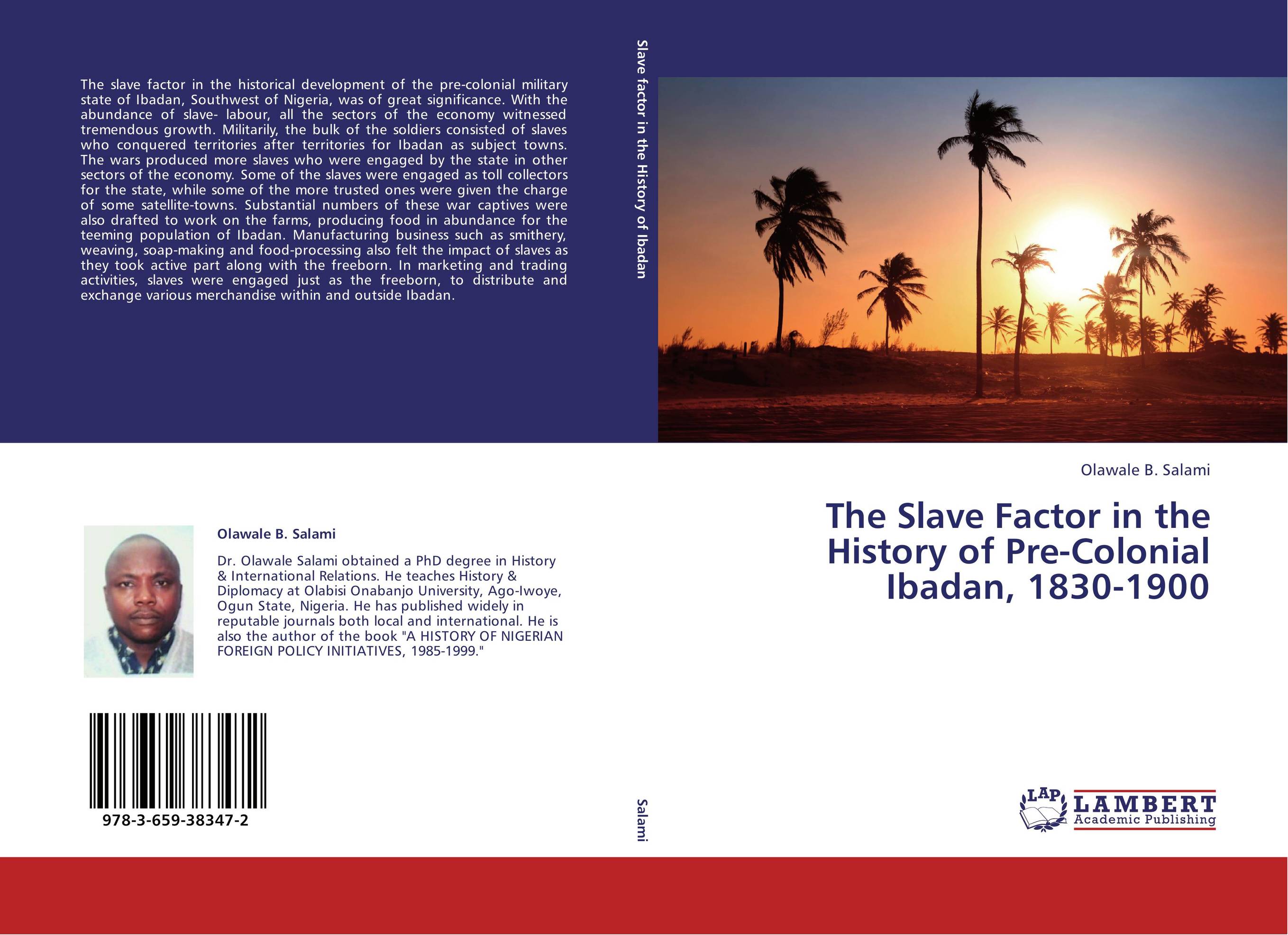| Поиск по каталогу |
|
(строгое соответствие)
|
- Профессиональная
- Научно-популярная
- Художественная
- Публицистика
- Детская
- Искусство
- Хобби, семья, дом
- Спорт
- Путеводители
- Блокноты, тетради, открытки
The Slave Factor in the History of Pre-Colonial Ibadan, 1830-1900.

В наличии
| Местонахождение: Алматы | Состояние экземпляра: новый |

Бумажная
версия
версия
Автор: Olawale B. Salami
ISBN: 9783659383472
Год издания: 2013
Формат книги: 60×90/16 (145×215 мм)
Количество страниц: 112
Издательство: LAP LAMBERT Academic Publishing
Цена: 34755 тг
Положить в корзину
| Способы доставки в город Алматы * комплектация (срок до отгрузки) не более 2 рабочих дней |
| Самовывоз из города Алматы (пункты самовывоза партнёра CDEK) |
| Курьерская доставка CDEK из города Москва |
| Доставка Почтой России из города Москва |
Аннотация: The slave factor in the historical development of the pre-colonial military state of Ibadan, Southwest of Nigeria, was of great significance. With the abundance of slave- labour, all the sectors of the economy witnessed tremendous growth. Militarily, the bulk of the soldiers consisted of slaves who conquered territories after territories for Ibadan as subject towns. The wars produced more slaves who were engaged by the state in other sectors of the economy. Some of the slaves were engaged as toll collectors for the state, while some of the more trusted ones were given the charge of some satellite-towns. Substantial numbers of these war captives were also drafted to work on the farms, producing food in abundance for the teeming population of Ibadan. Manufacturing business such as smithery, weaving, soap-making and food-processing also felt the impact of slaves as they took active part along with the freeborn. In marketing and trading activities, slaves were engaged just as the freeborn, to distribute and exchange various merchandise within and outside Ibadan.
Ключевые слова: History, Role, Ibadan, Pre-colonial, slave



